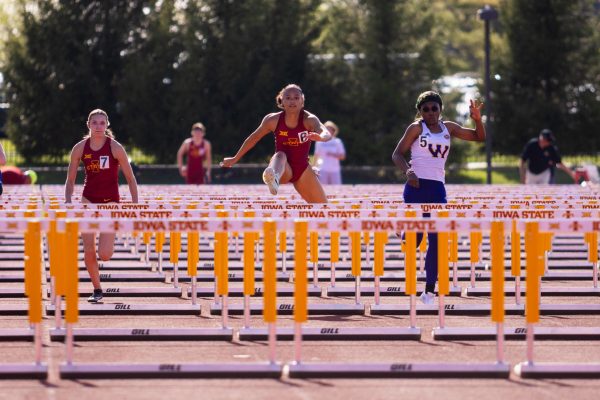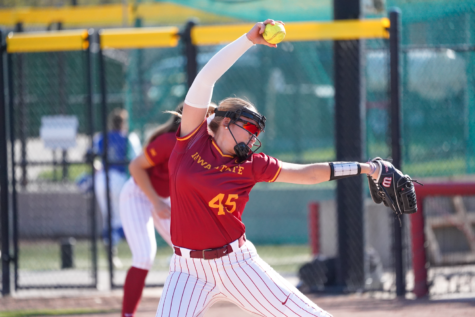Only a world away
May 30, 2002
The World Cup soccer tournament begins tomorrow, but Steffen Nass won’t be back in Germany to experience the occasion.
Nass, a defender for the ISU men’s soccer club, decided to work and “get English 302 out of the way” instead of going back to his native land.
He will be watching the tournament from Ames while his country tries to win the Cup as it did in 1990.
That year, Nass was there to rejoice with his countrymen.
“It was just great being back in my hometown,” Nass said. “It was just a huge party.”
The World Cup is a 72-year-old tradition consisting of 32 teams that battle for nearly a month. This year’s contests will, for the first time, take place in two separate countries – in Seoul, South Korea and Tokyo, Japan.
Qualification for the World Cup began nearly two years ago, with 192 teams participating, according to worldsoccer. about.com.
Nass isn’t the only one who will miss out on the tournament. Iowa State has a large proportion of international students who will stay in the U.S. next month.
For something as big as the World Cup, that creates some homesick students.
Enter Fares Karadsheh.
Karadsheh is from Jordan, which isn’t participating in this year’s World Cup, but the fact that he’s away from his home country during such a huge event is tugging on his heartstrings.
It’s even more frustrating for students like Karadsheh because most major sports outlets aren’t devoting much coverage to the tournament.
“[In Jordan] all the channels will be covering about the World Cup,” he said. “Here . I don’t even know anything about it.”
Nevertheless, the Iowa State junior is determined to watch the games. They became a part of his life after he played soccer for 17 years.
“I’m going to try to find somebody that has cable,” Karadsheh said, “Even if the timing will be bad, like three o’clock in the morning, I’m going to watch it.”
Despite not being directly involved with the World Cup, Karadsheh said that his country will still have plenty of festivities related to the event.
He said the local bars will encourage residents to come in and watch the game.
Some businesses will even let their employees out of work early, just to let them watch their beloved soccer.
“I cannot compare it to anything because it’s so big,” Karadsheh said.
“It’s like a Super Bowl every day for one month.”
Nass agreed.
He said the only thing in Iowa that compares to the World Cup is the heated rivalry between the Cyclones and the Hawkeyes.
“It’s huge [in Germany],” Nass said. “Take Iowa-Iowa State and multiply it by ten. It’s in the paper every day, almost a year in advance.”
Nass said the tournament is on a much larger scale because it’s not just an intrastate battle, it’s between countries.
“Once the World Cup starts, it’s a chance to go one up on another country,” Nass said.
He noted that there has been “animosity” between Germany and England for years, making them Germany’s biggest rivals.
The World Cup is an even bigger occasion to the developing countries, Nass said.
“I think it’s more of a big deal for people from underdeveloped countries, because they don’t have much to look forward to,” Nass said.
“Once the World Cup starts, it’s basically their religion.”
Germany hosts the World Cup in 2006 and Nass hopes to be there for it.
“I’m thinking about it,” Nass said. “Hopefully by then I’ll have enough money.”
















